#wicca resources
Text
does anyone have any good resources to get into Wicca for beginners? I did start listening to a podcast about Wicca and witchcraft but kinda wanna get into it more
11 notes
·
View notes
Text
Quincy's Golden Milk Tea
#witchcraft#witch resources#witch research#witch#witchy#wicca#spellcraft#spellwork#pagan#witchblr#tea#sleepy tea#witch recipes#witchy recipes#recipes#recipe
838 notes
·
View notes
Note
Hello! How are you? I was wondering if you had any advice or tips for someone who was interested in learning and wanting to try folk magic? I've been interested in looking into it for a while, but I'm not really sure of where to go with it.
Hi! I'm good thank you!! This is my jam!!!
Okay so this might be a bit of a long one -
Folk magick is incredibly personal and local to where you are. It is magic for the people, by the people, and as such harnesses incredibly old ways of working. It is also, as a pathway, deeply accessible. I see it as a path that allows you utilise the energies around you, rather than requiring certain tools or garbs or timings like ceremonial magick does.
Some general tips I'd recommend include:
Get to know the flora and fauna in your local area, both through research but also actively communicating and working with those plants and animals. For some practitioners, like myself, this can influence the food and herbs you cook with and use for spell work (and even down to the tea I drink!).
Channel your community. Connect with the people whom you share these spaces with and understand them. You don't necessarily have to be besties, but saying a quick hello to your neighbour can go a long way.
Find your spot! When I moved for University, I picked a tree on campus that was my tree and sat with it, and - eventually - I brought more people to come sit with me. If chatting to people feels daunting, find somewhere to call your own (a booth at a coffee shop, a sofa at the library, a statue in a museum) and anchor yourself there. I like to avoid using my phone at my spot, and it's become an energetical hearth during my time at Uni, when I would often move physical spaces.
And some further reading I'd recommend to get you started:
Folk Magick vs WItchcraft
Folk Magick in the fight against Capitalism
Folk Magic Guide Video
I'll be doing a podcast episode on this shortly, so please stay tuned for that! And if you have any questions please don't be afraid to shoot me an ask - I hope this helped! x
#Special interest go brrr#so hard not making this british folk#if yall want a post on that lmk bc i have so many fuckin resources good lord#folk magic#folk witchcraft#hearth witchcraft#anti capitalist#eco witch#environmentalism#witchblr#wicca#pagan#hearth witch#folk witch#witchcraft#divination#tarot#astrology#paganism
13 notes
·
View notes
Text
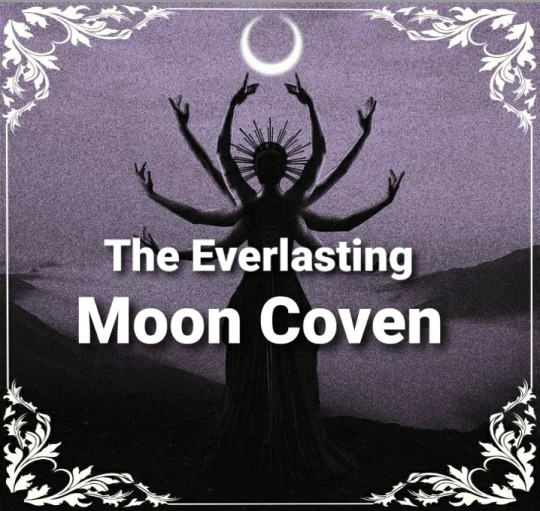
By Jazz
Everlasting Moon Coven is an 18+ discord server originally dedicated to hosting a free 900+ PDF library, and has expanded to a hosting space for learning, expanding, and self exploration with other like minded peers.
We are an open door for any solo path or patheon devotee no matter how long you've been studying, or even non-practioners respectfully curious about the many crafts. Our server hosts book clubs, resource requests for books that have not been added, and full access to our ever expanding PDF library (English and Spanish sections). Along with opt-able topic channels for all walks of magic and sorcery, we host a space to discuss and grow in your chosen path. Voice calls hosted often and monthly movie nights, we look forward to filling our space!
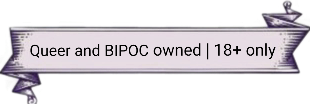
Join Server Here🔗
#witchblr#witchcraft discord#witchcraft#paganism#Pagan#LGBTQ+#Bipoc owned#books & libraries#Library#book resources#witch discord server#Discord server#18+ server#hellenism#folk witchcraft#wicca#occult#occultism
16 notes
·
View notes
Text
Reshaping How We Connect With the Gods
Shame is a troubling thing that causes people to remain in religions even when they don’t believe in them. Shame creates a gaping hole between us and the Divine and drives away our own inner belief systems in order to promote the more widely accepted one.
A lot of pagan traditions use shame to keep people within their folds and belief systems. For example, heathens will use oath-keeping, wyrd maintaining and breaking, and luck to retain people within their beliefs. If someone does not uphold their doctrine, they will be cast out and made to feel ostracized and ridiculed for not being a proper “heathen.” This obviously has created enormous pressure within the community to ostracize people for thinking differently and maintaining practices that have no historical precedent because no historically documented practice actually holds any real meaning in the modern day world.
Additionally, heathens tend to use the Aesir as models for the proper heathen “doctrine” as if the Aesir have anything to show for what is considered moralistically superior. The Aesir then are boiled down and belittled and other aspects of the pantheon are stripped of their nature and made to appear as an enemy.
If shame and intolerance is what is holding a group together, how can we then assume they are “inclusive” and “forward thinking?”
You can read the rest of this post and others like it here:
#devotional polytheism#mysticism#norse gods#norse paganism#norse polytheism#deity work#deity worship#lokean#paganblr#heathenry#norse pagan#hellenism#wicca#norse loki#norse heathen#beginner witch#beginner pagan#pagan resources#pagan blog#paganism#deity communication#deity#divine communication#shame#religion#religious trauma#deconstructing christianity#polytheist#celtic polytheism#hellenic polytheism
11 notes
·
View notes
Note
do you know any wiccan/dianic literature that focuses on women's relationship with food/weight/body-image and in general is there any sort of wiccan/witchcraft/dianic literature that you think can help me overcome my eating disorder? i feel like the usual ''therapy'' and social media body positivity stuff just doesn't work on me. i need something like a mantra and a personal belief or even personal rituals to keep me from my eating disorder and only the rare times i adopt something akin to it does it help me not obsess over food and not have unhealthy relationship with food.
Hmm thats actually a good question Anon! Love your lady Landscape comes by Lisa Lister comes to mind as it is a book that teaches you to connect with your body in a more Holistic fashion; there is more of a focus on periods/ a side of sexuality from what I've researched about the book, but does claim to speak about how to become embodied in yourself winch seem to be mostly what you're looking for. I do know that eating disorders can cause disruptions in your menstrual period and otherwise harm that aspect of Feminine Help, so if you feel an issue in that department I'd sincerely recommend picking it up
Non Wiccan but I did see The Beauty Myth being advised frequently among rad circles as something that helped some Gyns i knew personally dispelling some myths about the worth of patriarchal beauty standards. It may be worth looking into as a way to unpack some of the societal conditioning that does no service to your condition.
I'd encourage you to look into A Goddess you'd want to tap into and embody and make your own mantra to aid you whenever your ED flairs up as well. A number of Dianic Go to Books such as Ariadne's thread, Spiral Dance and Women's Rites and Women's Mysteries can help you carve out the best solutions spiritually and magically for your condition. If you're interested in the Greek Pantheon, Goddess in Everywoman by Jean Shinoda Bolen can be of great assistance and a gateway of how The Goddesses tend to appear in our Psyche and Shape us.
The Divine Feminine Handbook Vol I by Marilyn Pabon talks explicitly about Holistic/ Intuitive eating and overcoming self doubt; during my research into books that could possibly help you this part stood out to me most.
If you're comfortable you can reach out to me any time you'd like Anon! I'm no stranger to a distorted view of my own body even if I have no ED and I sympathize with your plight sincerely.
)0(
#tw EDs#again any Gyn that follows me or not is more then welcomed to chim in and ad what personally helped them curb any self harming tendencies#towards their bodies#anon ask#dianic wicca#witchcraft#resources#response#dianic witchcraft#divine feminine#paganblr#witchblr
14 notes
·
View notes
Text
I've created a blog post filled with resources for those interested in the practice of witchery. For the experienced practitioners, please look past the simple definitions and explanations starting each section; I'm always thinking of the new people stumbling upon this path, the ones who need these explanations. Beyond that, you'll find all the good old knowledge, spells, rituals, and more based on my own experiences and my personal practice of the craft.
At this blog post you'll find a link to rituals that highlight our special moments in life; a link to magickal correspondences; a link to my online Book of Shadows filled with spells galore; a list of my books for resources, divided between the books on witchcraft, goddess spirituality, and tarot; a list to my YouTube channel and playlists, also divided between information on witchcraft as well as information on the tarot and divination; and finally, you'll find a link to information and a comprehensive list of herbs at my website.
Enjoy!
When viewing on your phone, click on "view web version" for the full experience.
#witchcraft#wicca#witchery#rituals#pagan rituals#green witchcraft#spells#magickal correspondences#books#resources#spirituality#budding witches#pagan videos#playlists
4 notes
·
View notes
Text
The History of Wicca: A Beginner's Guide
Wicca is a modern, nature-based religion that believes in the worship of a goddess and god, as well as the practice of magic. It has its roots in various ancient pagan traditions, as well as the teachings of British civil servant and amateur folklorist Gerald Gardner in the mid-20th century.
Gardner claimed to have learned about the practices and beliefs of an ancient, secretive witch cult while traveling in the East, and he incorporated these ideas into a new religion that he called Wicca. Gardner's writings, along with those of other Wiccan leaders such as Doreen Valiente and Alex Sanders, helped to shape the modern understanding of Wicca and its beliefs.
Wiccans follow a set of ethical principles known as the Wiccan Rede, which states "An it harm none, do what thou wilt." This principle encourages Wiccans to act with personal responsibility and to respect the free will of others.
Wiccans also observe a number of rituals and celebrations throughout the year, such as the eight Wiccan holidays known as Sabbats. These celebrations mark the changing of the seasons and honor the goddess and god.
Wicca is a diverse, inclusive religion that welcomes people of all genders, sexual orientations, and cultural backgrounds. If you're interested in learning more about Wicca, there are many resources available online and in bookstores, as well as local Wiccan groups and covens that you can join.
I hope this blog post gives you some ideas for your Monday Tumblr post on the history of Wicca! Remember to include relevant images or graphics to break up the text and make the post more visually appealing.
#wicca#history#pagan#religion#gerald gardner#dorren valiente#alex sanders#sabbats#ethics#inclusive#diversity#beginner's guide#resources#covens
2 notes
·
View notes
Note
Hi! I saw your reboot asking about audio books on witchcraft. A lot of public libraries now have online audio books (most use Libby in the US) available to borrow. All you need is a library card. Again, if you’re in the U.S. I would recommend applying for one with your state library online, as they usually have the largest collections. The audio selection may not be huge, but at least it’s something.
Sorry for being so late to this, I wanted to respond when I had a chance to check it out.
Thank you so much this is a brilliant idea. My love affair with public libraries continues

7 notes
·
View notes
Text
Me when, learn :]
#I won’t lie this is a bit of a personal post :0#but it’s very important to me since- well I’m learning about something important to me <:]#I’ve been trying to learn about Wicca a ton as of late as I really want to partake in the religion but- I’ve been struggling to find#so Resources if anyone knows any would be really helpful <:]#but anywho! I’ve been reading about it a bit and have learned some of the basics andam excited#ask to tag#religion mention#tw religion#the moral code just means so much to me man <:]
2 notes
·
View notes
Text
Low-Effort Golden Milk
I saw a recipe for golden milk on Quincy's Tavern TikTok, and I decided to give a it a go with the ingredients I had around the house but being in a low-functioning depression stage right now I was not about to use the stove.
Here's my depression friendly take on Quincy's recipe :)
Ingredients: (Only 3!)
Milk (whole works best imo but any type of milk is okay for this)
Tumeric powder (If you don't have any on-hand these same-day options from Amazon are good: McCormick Turmeric Powder and Golden Milk)
Honey to taste (sweetener alternatives work but honey dissolves the best)
Optional: Chocolate flavoring (I personally like to add Rebbl Chocolate Protein but it is a bit of an acquired taste 😅)
Making It:
Get a microwave safe mug of your choosing! Size of the mug of course depends on how much milk you'd like. Fill the mug most of the way with your milk, if you are going to add the optional chocolate leave some room in the cup.
Add 1 teaspoon of turmeric. Turmeric can be a strong spice so always taste test before adding more!
Microwave for 30-45 seconds. My microwave is an absolute beast so it doesn't take long- you don't want to curdle the milk but a film on top is okay.
After microwaving you can add in your chocolate flavoring of choice and honey to taste! If it isn't warm enough pop it back in for another 30 seconds.
Woooo 🥳 you now have golden milk!
#witchcraft#witch resources#witch research#witch#witchy#wicca#spellcraft#spellwork#pagan#witchblr#witch recipes#witchy recipes#recipes#recipe#golden milk#turmeric
25 notes
·
View notes
Text
Pagan Deism: Three Ways from Margarian Bridger, hosted by the The Protean Resources Library of the Proteus Coven
#Pagan Deism: Three Ways#Pagan Deism#Margarian Bridger#The Protean Resources Library#Proteus Coven#Stephen Hergest#Wicca#Religion & Magic#Bookshelf#Tumblr Staff Has Ruined Links Now And I Hate Them For It
0 notes
Photo
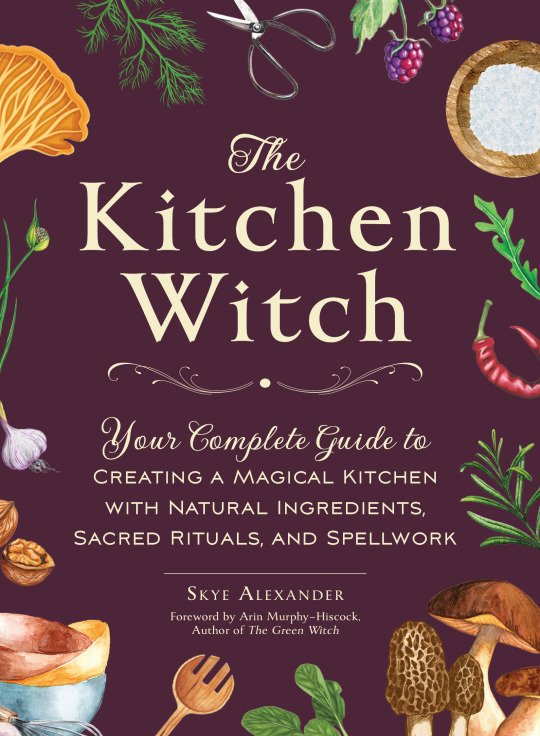
#adamsmedia#aesthetic#arinmurphy-hiscock#cottagecore#hearthmagic#magic#opinion#resource#review#rituals#simonandschuster#skyealexander#spells#spellwork#spiritual#thekitchenwitch#thekitchenwitchbook#wicca#witch
1 note
·
View note
Text
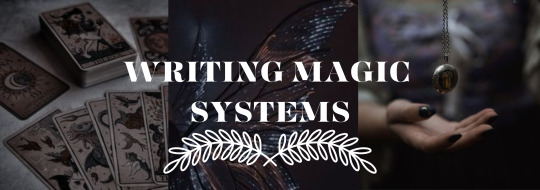
Let's Talk About Magic Systems.
There are two broad ways you can establish magic in your story world - work with existing concepts, or adapting it for something new.
Pick a System
High Magic vs. Low Magic
This distinction existes mostly in the western wrld from the Middle Ages onwards. In non-western cultures, this distinct often doesn't exist.
High magic requires magicians to study from books, ingredients are expensive and instruments elaborate and hard to get. The typical practioner of High Magic is of the upper class, highly educated, and rich. They serve in King's courts and have high social standing thanks to their knowledge.
Among the lower classes and women, Low Magic is ore common. It is taught orally and doesn't require reading skills and uses everyday objects and ingredients.
Black vs. White Magic
"White" magic is often associated with good, and "Black" with the evil. However, what really matters is the magicians intension, not the magic system that they work with.
The term "black magic" is often associated with working with the dead. It can also be used by an individual/group who just wants to appear more menacing.
Ceremonial Magic
This kind of magic involves lots of ritual, recitation and prayer, often in ancient langauges such as Latin, Aramaic and Sanskrit.
Most of the time, it's High Magic and practiced by religious figures.
The typical practioner is educated, has great confidence and a good memory.
Natural Magic
It involves ingredients from nature, such as herbs and water.
It may be practiced outdoor, in a kitchen, or in a laboratory.
The rituals are simple and short, and the practioner will watch out for the turning of seasons, phases of the moon, etc.
Religious Magic
This is a diety working through a magician. The magician prays and asks her god to work the miracle.
Most religions have their own form of magic, and the kind of miracles that the magicians can bring can be limited.
Wiccan Witchcraft and Voodoo are largely religious magic.
The typical practioner would be spiritual and devout, often suspicious of other religions.
Alchemy
Alchemy is both High and Low Magic, and it can incorporate religious, spiritual, philosophical and mythological elements.
In a modern setting, alchemy can also be portrayed as "science gone too far".
The typical practioner would be patient, methodious, educated and driven. The tools includes laboratory equipment, astronomical charts, writing materials, and an unsuspecting roommate(?) for testing.
Traditional Witchcraft
Traditional Witchcraft is a form of Low Magic. In early historic periods, the witch played an important role in village life, often old women who owned apothecaries and helped out other villagers.
The typical practioner would be female, uneducated, illiterate, practical, resourceful and poor. She will have a good memory and well-developed senses.
Tools used would be simple household implements - a cauldron, a broom, knife, etc. that can evade the Inquisitor's suspicions.
Wiccan Witchcraft
If you write contemporary fiction, this is the system your character is most likely to use. It's modern witchcraft, based on the religion of Wicca.
Wiccan witchcraft mostly developed in the second half of the twentieth centruy. It is a form of bothe Natural Magic and Religious Magic.
Based on nature worship and the polarity between male and female, the magician often begins a Wiccan ritual with an invocation to a God/Godess. The Lady (Godess) is depicted as having three aspects: Maiden, Mother and Brone. The Lord (God) may be depicted with horns.
The focus of Wiccan magic is often on healing, with an emphasis of ethical consequences of what is being performed.
It is often practiced outdoors, sometimes naked (which they call 'skyclad'). Wiccan witchcraft uses the phases of the moon to amplify its effects.
Wiccan like to gather in groups called 'covens' or to meet once a month or for major festivals. The coven leader may be called 'high piestess/priest'.
Typical tools include a chalice, a knife (called 'athame'), a wand, candles, herbs, crystals, and essential oils.
Necromancy
The magician summons a dead person, either ghost or spirit, sometimes bodily. The dead are enlisted to grant the magicians with favors or are questioned for information.
It may be related to Shamanism, as well as to some forms of psychic work such as channelling and Spiritualist seances.
The typical practitioner is psychally gisted, strong-willed and courageous.
Shamnism
Shamnism is a Low Magic system. The shaman intercedes between the human and spirit world by communicating with spirits, often to obtain information or provide healing.
Shamans may travel to the spirit world to seek answered, with some level of danger. They use drums, chanting, dancing and drugs to alter their consciousness and communicate with spirits.
Practicing shamans often work alone, but they choose a successor to train. The apprentice is supposed to accept the calling.
The typical shaman is musical, sensitive with a strong sense of rhythm and the psychic.
Tools include drums, bells, a costume, herbs, bones, smoke and mind-altering drugs.
Ancient Egyptian Magic
Ancient Eyptian Magic ovelaps with Religious magic, medicine and with psychic work. The deities most frequently evoked are Selket, Aset for raising the dead, and the gof Thoth for anything to do with sickness and healing.
The emphasis of Ancient Egyptian Magic is protection, often done throgugh an amulet or talisman. The circle or oval is the most important shape that has protective qualities.
The precise wording of a spell is important, as well as the colors that are involved. For magic to affect someone the magicians must know that person's true name.
The typical practitioner is male, literate, often a priest attached to a emple.
Folk Magic
This is a form of Low Magic practiced by amateurs.
This includes housekeepers who can keep the rats out, farmers who can ripen fruit before the height of the season, and scullions who can make water boil faster.
This people would only know a handful of spells, ans pass them in to memebers of their family.
Voodoo
Voodoo is religious magic and low magic.
The rituals are held in private, and may involve communication with spirits, especially the spirits of ancestors and saints.
Commonly used to cure aliments, confound enemies, and obtain desires.
Invent a System
Choosing the Right Words
If your character is clearly a witch, shaman, a necromancer, etc. with a specialty, use that term. Otherwise, the word "magician", or "mage" would be most appropriate.
The term "magus" (plural magi) refers to practitioners of the ancient Zoroastrian faith.
Strictly speaking, witches and wizards are practitioners of two very different magic systems, so your female character can be a wizard, and vice versa.
'Warlock' really means 'oath-breaker' or 'traitor' and doesn't describe a magician.
'Conjurer' is someone who can creae effects to impress an audience, not really magical in itself. The more modern temr would be 'illusionist'
A group of magicians may be called a 'coven' (though it applies mostly to Wiccan magic). A magician working alone would be a 'solitary'.
Magic vs. Magick
Normally, "magic" is the correct spelling.
However, "magick" may be used, especially by insiders, to emphasize that they refer to the real thing, not conjuring or other trick of the eye.
The magic systems are sometimes capitalized, sometimes not. When it involves a religion, nationaliy, or a particular family line, it is capitalized. Just make sure to keep it consistent throughout your book.
If you like my blog, buy me a coffee☕ and find me on instagram! 📸
#writer#writers#creative writing#writing#writing community#writers of tumblr#creative writers#writing inspiration#writeblr#writing tips#writers corner#writers community#poets and writers#writing advice#writing resources#writers on tumblr#writers and poets#helping writers#writing help#writing tips and tricks#how to write#writing life#let's write#resources for writers#references for writers
318 notes
·
View notes
Text
✧ ℌ𝔞𝔩𝔩𝔬𝔴𝔢𝔢𝔫 𝔖𝔭𝔢𝔠𝔦𝔞𝔩: 𝔚𝔥𝔞𝔱 𝔨𝔦𝔫𝔡 𝔬𝔣 𝔴𝔦𝔱𝔠𝔥 𝔞𝔯𝔢 𝔶𝔬𝔲? ✧

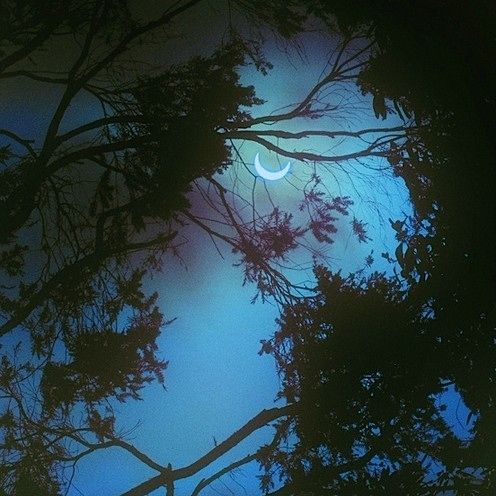
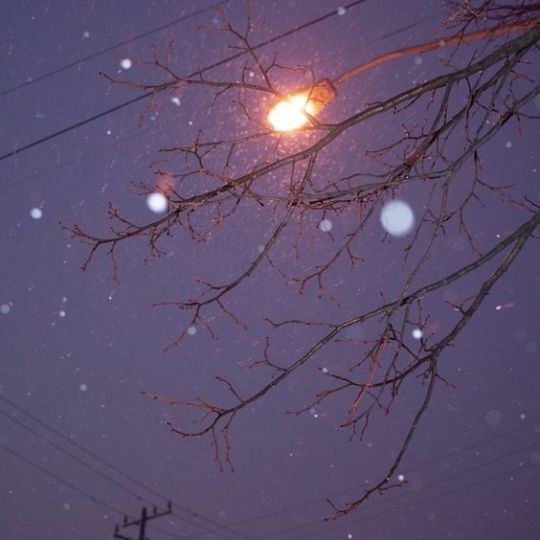
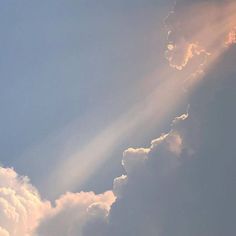

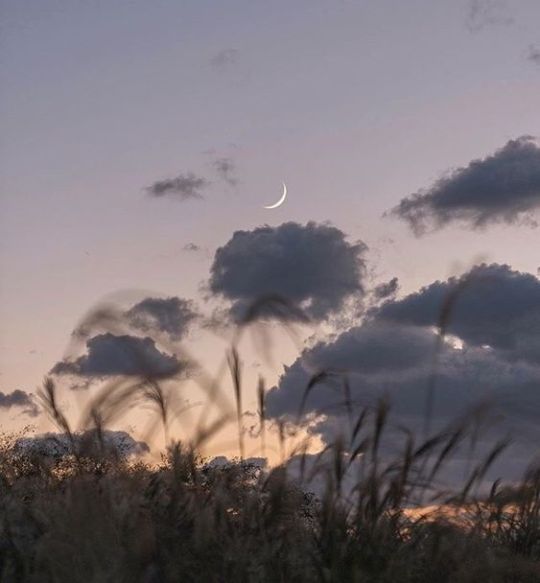
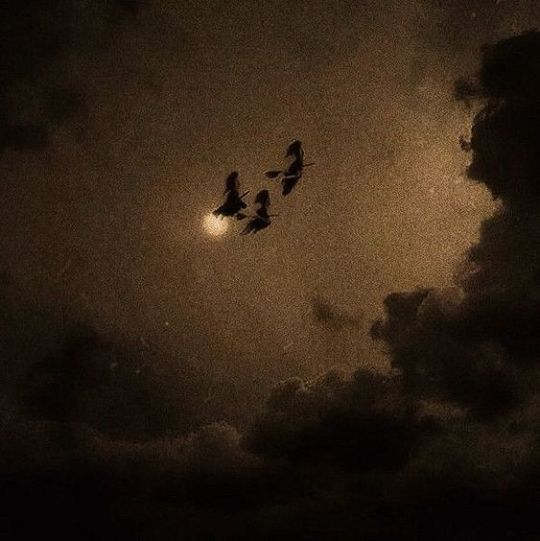

01. Green witch
The Green Witch embraces nature by drawing on the energies from the earth and of untamed things. They commune with the land, with stones and gems and they reley on plants, flowers and herbs. They call to nature for guidance and respects every living being and they have a strong belief that humans must give back to world and protect it. They tend to be animal/environmental activists and they will go the extra mile to spread awareness.
The Green Witch makes their own ritual tools from found objects in nature and they make sure these are ethically sourced materials. They might also work with Animal Guides and Plant Spirits. The forest is the Green Witch's sacred temple and they often spend time hiking or visiting parks and gardens.
Books I recommend:
The Green Witch ~ Arin Murphy-Hiscock
Encyclopaedia of Magical Herbs ~ Scott Cunningham
Occult Botany ~ Paul Sedir
The Treadwell's Book of Plant Magic ~ Christina Oakley Harrington
Wortcunning ~ Nigel G. Pearson

02. Crystal Witch
Crystal Witches focus their magick on healing and manifesting. Crystals are known for their healing energies due to their ability to raise one's own vibration. Crystals emit this constant vibration, that when met with a lower vibration, has the ability to raise, in turn, providing healing qualities through an energetic level, which can therefore fast track our own physical healing.
Crystal Witches may also be drawn to rocks and stones alike and generally appreciate the gift of nature. They may also be attracted to the study of geology and often work with chakras/practice chakra meditation.
Books I recommend:
The Power of Crystal Healing ~ Emma Lucy Knowles
The Zenned Out Guide to Understanding Crystals ~ Cassie Uhl
The Crystal Workshop ~ Azalea Lee
Crystals for Witches ~ Eliza Mabelle

03. Kitchen Witch
The Kitchen Witch’s potion is a soup and they’re magical wand is a trusty wooden spoon. Cooking becomes a sacred art for the Kitchen Witch. A Kitchen Witch may not often dedicate a specific time and resources to ceremony, instead they work intuitively rather than ritually to find the magic in everyday life.
Kitchen Witches personalise their space with great intention and care. They instantly know when a space resonates with them or not. They often cook with whole, organic foods and they may also grow their own food. They also tend to enchant ingrediants before using them in a dish and they might sometimes make dishes to treat illnesses.
Books I recommend:
Potions, Elixirs & Brews ~ Anais Alexandre
The Wicca Cookbook ~ Jamie Wood & Tara Seefeldt
Wicca in the Kitchen ~ Scott Cunningham
The Magick of Food ~ Gwion Raven

`04. Sea Witch
A sea witch is a practitioner of witchcraft whose spiritual focus and magical practices are closely tied to the sea and its elements. They use the potent energy of the ocean as a force to drive spellcraft, cleanse the soul and renew the spirit. Sea Witches forge a deep bond with the sea and its inhabitants, working with its energy to manifest their intentions and achieve their goals.
Sea Witches are naturally sensitive and empathetic. The ocean is their sacred space and often times they might live near the ocean or are very drawn to it. They are also very drawn to stroms and enjoy the rain. They might study oceanic mythology and sea animals. They also often collect seashells, pebbles or other beach treasures and may use them in their craft.
Books I recommend:
Sea Witch's Companion ~ Levannah Morgan
Sea Magic ~ Sandra Kynes
Water Witchcraft ~ Annwyn Avalon
Mermaids ~ Skye Alexander

05. Divination Witch
The Divination Witch focuses primarily on divination practices such as tarot & oracle, pendulum, scrying, runes, tea leaf reading, meditation, and connecting to your inner guides/higher being. To them, it’s most important to incorporate these divination practices to their everyday life, or at least in ceremonial rituals.
A Divination Witch may draw power from the earthly elements, mediation, or with the help of seasonal changes that open portals and lower the veil between the physical and spiritual worlds. For those highly in-tuned with their intuition, have the ability to hear, see, or sense what others can’t, find themselves as an empath, and have the uncanny ability to predict the future.
Books I recommend:
The Book of Divination ~ Michael Johnstone
I Ching or Book of Changes ~ C.G. Jung & Richard Wilhelm
Tarot Card Meanings ~ Brigit Esselmont
Chakra Healing ~ Margarita Alcantara

06. Lunar/Cosmic Witch
A Lunar Witch has a fascination and connection with the skies, stars, moon and planets are unparalleled. With the fundamental belief that what happens above in the cosmos is a direct correlation to what happens on Earth, Cosmic Witches focus their study on astrological transits, moon phases, and intertwining that with their own natal birth charts. A strong belief is that as we are born, we are given a blueprint, a snapshot of the skies, that presents past, present and future forecasts of not only ourselves as an individual, but as a collective, sometimes generational viewpoint too.
They draw their power from the Moon and perform certain spells and rituals depending on the phase of the moon.
Books I recommend:
Moon Magic ~ Aurora Kane
Moon Spells ~ Diane Ahlquist
Moon Magic ~ Diane Ahlquist
Witchs Moon ~ Edain McCoy

✧ 𝔗𝔥𝔞𝔫𝔨𝔰 𝔣𝔬𝔯 100 𝔣𝔬𝔩𝔩𝔬𝔴𝔢𝔯𝔰! ℌ𝔞𝔭𝔭𝔶 ℌ𝔞𝔩𝔩𝔬𝔴𝔢𝔢𝔫! ✧
Special thanks to @rainychibikko @googiekook @attymi @miraclekay97 @julyourwitch @honeytarotmind @honnuey @notakitsune @mercurialstime @artscapismsworld
#tarotblr#witchblr#witch community#pac reading#tarot community#divination community#pick a pile#pick a picture#pick a card#tarot witch#witch#witches#witchcraft#100 followers#halloween special#casper spills
250 notes
·
View notes
Text
🌿✨ A Beginner’s Guide: Navigating the Magical Seasons and the Wheel of the Year ✨🍂
Hello, witches! Ever heard of the Wheel of the Year? 🌙🌸 Let’s take a magical stroll through the seasons and see how it spins its enchantment in witchcraft for beginners! 🔄🌷

🔮 What’s the Wheel of the Year?
• Imagine a cosmic calendar divided into eight magical chapters, each representing a unique season and energy shift. This is the Wheel of the Year!
🌳 The Eight Sabbats:
• The Wheel has eight spokes, known as Sabbats. These include Samhain, Yule, Imbolc, Ostara, Beltane, Litha (Midsummer), Lammas, and Mabon. Each has its own magical significance and vibe.
🌞 Honoring Nature’s Rhythms:
• Witches use the Wheel to attune with nature’s cycles. From the darkness of winter to the blossoming of spring, each Sabbat reflects the ebb and flow of energies.
🌼 Practical Magic:
• Incorporate the Wheel into your craft! Celebrate Sabbats with rituals, spells, and activities aligned with each season. For instance, plant seeds during Ostara for growth or embrace gratitude at Mabon.
📚 Beginner-Friendly Resources:
• Explore books like “Wicca: A Guide for the Solitary Practitioner” by Scott Cunningham or “The Modern Witchcraft Spell Book” by Skye Alexander for practical insights into Wheel of the Year celebrations. (Wicca ≠ Witchcraft, Wicca is a religion, Witchcraft is a folk practice! The book by Scott Cunningham introduces the Wheel of the Year and how it is utilized in Wiccan traditions.)
🌱 Connect with Community:
• Join online communities or local groups to share experiences and learn how others incorporate the Wheel into their practice. There’s magic in sharing!
🌕 Celebrate at Your Own Pace:
• No need to rush! Celebrate the Sabbats that resonate with you. The Wheel is a guide, not a rulebook. Feel the energies and go with the flow.
🌈 Begin Your Wheel Adventure:
• Whether you’re a total newbie or a curious seeker, the Wheel of the Year invites you to dance with nature’s rhythms, embrace magic, and celebrate the enchantment of every season! 🌟🌿
#queue the magick#witchcraft#reference#witchblr#magickkate#witch#kitchen witch#sigils#college witch#protection magic#wheel of the year#nature witch#beginner witch#seasonal magic#sabbats
82 notes
·
View notes